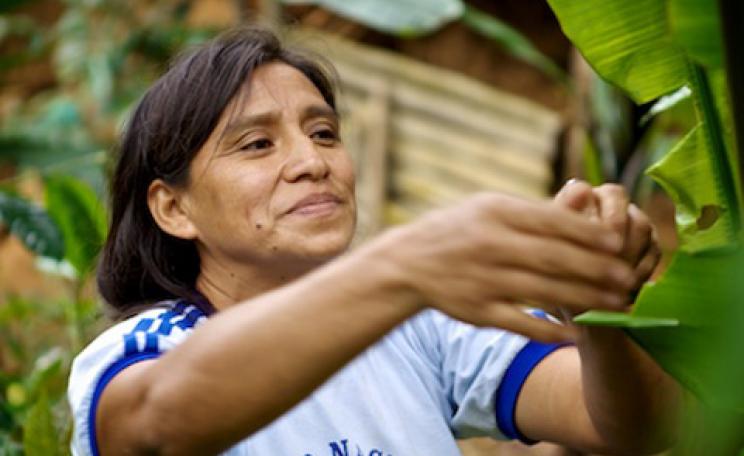What has been your most successful campaign to date?
Landlife's most notable success has been building the National Wildflower Centre. In reality it's the culmination of our campaign to promote creative conservation practice, which proves that when you give nature an opportunity exciting things happen -that celebrate nature and culture. Its about lending a the helping hand to put the buzz back in the land, and to let nature perform its evolutionary dance. Great things are possible, given the right starting point.
What has been your least successful campaign to date?
Not enough people know about it what we have been doing, and the difficulty of changing practices perceptions and traditions in the landscape and conservation professions, where budgets are still huge. The truth is we are often too cheap and cheerful to be taken seriously. But we believe in ripple effects and the tortoise beating the hare.
What gets you out of bed when you're at your lowest?
A blue sky, and the potential of a single seed when used well and given a good start.
Corporations: work with them or against them?
With, but in a principled way. There's a lot of talk about building bridges, but not many people seem able to cross them. The truth is organisations at all levels are about the individuals, and in that way its about winning people over. We can be sure it won't be easy but a fortress mentality doesn't work, the walls need knocking down, not building. We do it by being a trojan mouse.
What is the best way to motivate people?
Generosity of spirit, personal contact, conversations, eye to eye, firm handshakes, and genuine honest relationships, sadly real partnerships of mutual benefit, even between environmental groups are often very blinkered, and self centred.
What is the best way of reaching politicians?
Jealousy; when they know you have something they can't quite touch but need.
What is the most important thing to avoid when campaigning?
Arrogance and a ‘holier than thou' attitude, it doesn't mean you can't be stubborn, or believe you are right. Its the need to be convincing and engaging enough to persuade people they can change tack. Its easy to get lazy if you think you are right all the time. Its good to be challenged on a regular basis as to your motives. Accessibility is important.
Most important thing government could do this year?
Introduce a range of mandatory wildflower requirements, to enact creative conservation nationwide.
Most important thing individuals could do this year?
Get involved in creative conservation project work, pushing the barriers and planting seed.
What makes a good campaigner?
Continuity of interest and persistence, flexibity and an ability to laugh at yourself.
What (other) campaign has caught your attention recently?
The campaigns surrounding the loss of bees and their habitat (Buglife's Get Britain Buzzing/Neal's Yard Remedies' Bee Lovely), which I think have great strength to interest people and create concerted action.
Who is your campaign hero (past or present)?
Woody Guthrie. 'All You can sing about is what you have seen.' We need to sing about the good things we can do to make the world a better place, and make sure we share it, so others can make it happen too.
Further information:
| READ MORE... | |
 |
GREEN LIVING Five of the best…British wildflowers From Viper’s Bugloss to Field Scabious, a scattering of wildflowers can help turn your garden into a haven for wildlife, says Jeff Holman |
 |
INVESTIGATION 'Britain's rainforests' in danger as gardeners love affair with peat continues While the proposed sell off of UK forests attracted a chorus of criticism, the destruction of peat bogs continues almost unnoticed. Sam Campbell reports from current flashpoint Chat Moss, near Manchester |
 |
INVESTIGATION Why invasive plants are the 'second biggest threat to biodiversity' after habitat loss As experts gather in London for a major conference addressing the often overlooked threat of invasive species to biodiversity, Carrie Madren gets a briefing from those on the frontline in the battle against 'pest plants' |
 |
HOW TO MAKE A DIFFERENCE TAKE ACTION to protect Britain's bees Sign the petition to ban neonicotinoids in the UK and help safeguard Britain's threatened bee population |
 |
INVESTIGATION London 2012 Olympics: what's the hidden cost to green spaces and wildlife habitats? Already hit by rows over radioactive waste and airport expansion, the London 2012 Olympic Games are accused of degrading green land vital to local communities and wildlife. Tom Antebi reports |








